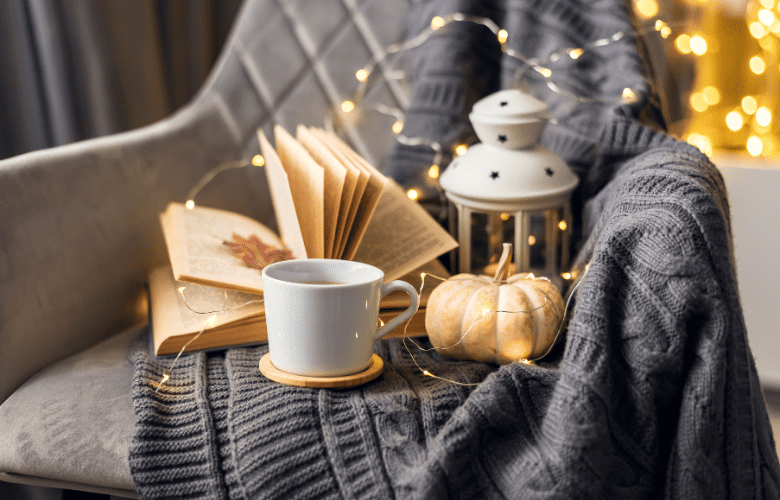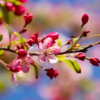The TCM Body Clock & 5 Powerful Winter Sleep Hygiene Hacks
Ever wonder why your winter sleep feels like a rollercoaster ride? As the cold creeps in and daylight shrinks, your sleep can take a hit. Well, buckle up because we’re diving into an ancient yet surprisingly relevant secret: the TCM Body Clock. From deciphering this clock to dishing out 5 winter sleep hygiene hacks, get ready to flip the script on your winter slumber struggles. So, cozy up and let’s unravel the secrets to a restful snooze this chilly season!
The TCM Body Clock
The Chinese body clock is a TCM concept that associates specific organs and meridians with different times of the day and night. Each organ has a two-hour period during which its energy (qi) is believed to be at its peak. This cycle repeats every 24 hours.
When it comes to sleep, disruptions during specific time periods may indicate underlying issues related to those organs or meridians. TCM practitioners may use this information to tailor treatments or recommendations to address imbalances and promote better sleep.
Here’s a breakdown of the TCM body clock and how it relates to sleep:
- 9:00 – 11:00 PM – Triple Heater/San Jiao
In TCM, between 9 -11 PM is linked to the Triple Heater or San Jiao meridian. This meridian doesn’t correspond directly to a specific organ. Instead, it’s associated with regulating bodily functions and maintaining overall balance.
During these hours, the body’s in recharge mode, fixing things up and renewing enzymes for tomorrow’s hustle. If sleep’s a mess during these hours, it might signal the body’s struggling to get that chill time or sort out some balance issues.
- 11:00 PM – 1:00 AM – Gallbladder
Between 11 PM and 1 AM, it’s all about the gallbladder in TCM. This organ is linked to decision-making. This stretch is when the yin energy steps back, making way for the yang energy to rev up. If you’re tossing and turning at this time, maybe there’s some stress or a gnarly decision messing with your sleep vibes.
- 1:00 – 3:00 AM – Liver
From 1 AM to 3 AM is liver time. This organ is all about detoxing and emotional harmony. If you’re up during these hours, maybe some emotional stress or a grumpy liver could be the culprit behind the nighttime wake-up call.
- 3:00 – 5:00 AM – Lungs
Between 3 AM and 5 AM, it’s all about the lungs. They’re the respiration and grief bosses. If you’re wide awake at this hour, maybe there’s some grief or respiratory issues making sleep dodge you. Oh, and keep cozy! The body digests oxygen best when it’s snug during these hours.
Winter and Sleep: The TCM Perspective
In TCM, every season throws a different vibe. Winter’s no exception. The darkness plays tricks on your body clock. With longer nights, your body’s like, “Hey, should we sleep more?” But sometimes, it’s not that easy.
When it’s freezing, your body wants to huddle up, not relax and doze off. And those shorter days? They throw your routine out of whack. Less daylight can mess with your internal clock, making it tougher to switch off at the right time.
TCM believes this winter shift messes with your inner energy, the Qi. It’s like your body’s playlist suddenly shuffles, and you’ve got to adapt. And all these changes? They team up against your sleep quality. Sleep might not come as easily, or you might wake up feeling like you missed a beat.
But it’s not all bad news! TCM offers tips to sync up with this winter vibe. Understanding how winter shakes things up can help you figure out how to snooze better and tackle those chilly nights like a sleep champ.
5 Powerful Winter Sleep Hygiene Hacks
Ready to tackle those frosty nights and seize some quality shut-eye? Here are 5 simple yet powerful tips for a restful winter slumber.
1. Balancing Diet and Nutrition
Winter’s like a whisper to eat warm, cozy stuff for better sleep. Think soups, stews, and teas to keep that inner fire burning. Ditch the icy drinks and go for warm sips like herbal teas or warm water with lemon. Also, you may add some nuts or seeds for that extra sleepy boost.
Go easy on the heavy, greasy meals—they’re not your sleep’s BFFs. Instead, load up on veggies, especially the root ones like sweet potatoes or carrots. They help balance your energy and ease you into a dreamy night’s sleep. So, when it’s chow time, think warmth and balance, and let your sleep reap the rewards.
2. Establishing Routines
The afternoon, from 3:00 PM to 7:00 PM, is associated with both the bladder and kidneys. Taking breaks to hydrate, practicing relaxation techniques, and supporting urinary and kidney health may be considered in alignment with the organ clock during winter afternoons.
The early evening, specifically from 5:00 PM to 7:00 PM, is a time when the kidneys are believed to be at their peak. TCM suggests that activities or practices supporting kidney health, such as warm and nourishing foods, herbal teas, and gentle exercise, may be particularly beneficial during winter evenings.
Start winding down a bit earlier, around 9 PM. Skip the super stimulating stuff like action movies or intense workouts. Opt for calming activities instead, like reading a book or chilling with soothing music. So, turn down the intensity, chill out, and let your body ease into dreamland mode.
3. Optimizing Sleep Environment
When winter knocks, cozy up your sleep den for some serious snooze action. Start with warmth—blankets, thick PJs, or maybe a hot water bottle. Oh, and keep it dark! Get those blackout curtains to block out the early sunrises or streetlights—your sleep will thank you.
Temperature matters too—cooler rooms are like a lullaby for quality sleep. And if noise is a bother, white noise machines or earplugs might be your ticket to a serene sleep sanctuary. Consider adding plants, not just for aesthetics but also for cleaner air and a serene sleep vibe.
4. Mind-Body Practices
In TCM, relaxation is a big deal for a peaceful sleep. Try some gentle movements like Qigong or Tai Chi—they’re like a dance for your body and mind, easing you into a serene state. Deep breathing exercises? They’re the secret weapon; they calm the mind and prep your body for a cozy night’s rest.
Meditation is another star. Take a breather, find a quiet spot, and dive into a short meditation session. It’s like hitting the reset button for your mind, setting the stage for a blissful slumber. And don’t forget acupressure or even self-massage; they’re the cherry on top, releasing tension and paving the way for a deep, dreamy sleep.
5. Managing Stress and Emotions
Winter stress? TCM’s got your back with some handy tricks. Start with mindfulness or journaling—put those feelings on paper or practice being present. Then, there’s the power of herbal teas like chamomile or lavender—they’re like relaxation potions for your nerves, helping you wind down.
Don’t skip the power of movement either. Exercise is like a stress-buster; it releases those feel-good vibes and tires out the body for a sounder sleep. And if stress is relentless, seeking support from a TCM practitioner might be the game-changer. They’ve got the know-how to balance those energy flows and guide you to a more serene winter slumber.
The Bottom Line
As you snuggle into the winter vibes, the TCM body clock whispers secrets about your sleep rhythms. Tuning into this clock helps tweak your evenings and create dreamy sleep nooks. With TCM-inspired relaxation tricks and stress-busters, you’re set for peaceful, snowy nights. Cheers to rocking those winter sleep hacks for the ultimate chill-out snooze! Consider chatting with a TCM practitioner for personalized guidance.












